Contents
Running a podcast isn’t always cheap. As such, you may have considered using affiliate marketing to generate income and support your work. However, all of the variables involved in selling to your audience can make it seem like an intimidating task.
Fortunately, we have a few tips to help you out. By carefully planning your affiliate marketing strategy for your unique podcast, you can set yourself up for financial success.
In this article, we’ll cover a few benefits of using affiliate marketing for your podcast. Then, we’ll give three pieces of advice to help you get started. Let’s go!
Why You Should Consider Affiliate Marketing for Your Podcast
Affiliate marketing involves using your reputation to promote another company’s product. This organization provides you with a unique link, which you then share with your audience. When a listener uses this URL to make a purchase, you’ll earn a commission.
This process may sound simple, but that’s one of its greatest strengths: you can use affiliate marketing for nearly any podcast topic. The innate flexibility makes this kind of advertising one of the best ways to monetize your ideas online.
For example, you get to choose which companies you work with. As such, you don’t have to sell any products that don’t match your show’s brand. This can help you pick items that fit your content and appeal to your target demographic.
This flexibility also applies to where you can post links. Unlike with pre and midroll ads, you’re not confined to your podcast recordings. You can also leverage affiliate marketing on other platforms for a holistic marketing strategy.
Finally, this technique is also scalable. As your audience grows and you become more proficient at advertising your links, affiliate marketing makes it possible to earn a full-time income from your podcast.
A Podcasters Guide to Affiliate Marketing (3 Important Tips for Success)
Here are a few clever ways to optimize your podcast’s affiliate marketing strategy.
1. Choose the Right Tools
Simply posting a link in your podcast description may not be enough to earn the income you’re looking for. One of the biggest reasons for this is, affiliate links tend to be long and complicated. The URL detail helps the vendor track purchases, but it may also discourage listeners from clicking through.
That’s why you might want to consider a tool that can shorten your URLs. Our plugin, PrettyLinks, can help:

You can use PrettyLinks to create user-friendly links that track purchases. By replacing random characters with brand-relevant keywords, you can also increase the perceived trustworthiness of your URLs.
However, that’s not all PrettyLinks can do. Our plugin is also an advanced affiliate marketing management tool. That means you can track how well each link is doing, and optimize your strategy for each campaign.
For example, you might find that one company’s links usually perform better on longer podcast episodes. You can then apply that trend in the future to maximize your profits.
As your affiliate marketing partnerships grow, you can use our Link Groups to keep everything organized. For instance, you might want to promote some URLs in all content, but others exclusively to your subscriber email list. PrettyLinks can help you distinguish between these links for more precise advertising.
Choosing a powerful tool such as PrettyLinks can help you reach more interested audience members. As a bonus, it can also show your podcast’s professionalism to potential partners. This is a valuable trait that they may consider when recruiting influencers.
2. Focus on Reaching a Wider Audience
If you’re running a podcast, you probably already have many reasons to grow your listenership. However, affiliate marketing adds a financial incentive: the more people who listen to your podcast, the more opportunities your affiliate links have to succeed.
One of the simplest ways to reach more listeners is by focusing on your podcast’s search engine optimization (SEO). SEO is the process of creating content that will rank highly on search results.
An effective way to boost your SEO is by frequently using phrases, also known as “keywords”, related to your topic. Try placing them in your episode titles, descriptions, and social media posts.
However, avoid using them where they seem unnatural. Awkward, forced keywords can put off your listeners and damage your SEO in the long run.
Another way to advertise your links to a larger audience is by submitting your podcast to niche directories. You may already be on popular platforms such as Apple and Spotify. However, specialty directories can help you quickly access a relevant market.
For example, if you have an educational podcast, you might want to submit it to Learn Out Loud:

Learn Out Loud is a directory that showcases educational content across a variety of topics. As such, you can use it to find eager students. The website can also be a valuable resource if you’re hoping to start an eLearning membership site.
3. Support Your Brand Image
Affiliate marketing is popular, so you’ll probably have many potential products to advertise on your podcast. However, not all of these items will be of the same quality. As such, it’s important to consider what effect a partnership might have on your brand.
A helpful rule of thumb is to only support products you can honestly endorse. If you consistently advertise quality items that you’re familiar with, your audience will likely trust your recommendations. Avoiding low-quality options can be crucial to avoid cheapening your brand image.
We also recommend sticking to companies that are relevant to your niche. For example, listeners may be confused if you start advertising cooking utensils on your football podcast. You’d probably be more likely to earn commissions if you partnered with a company selling team jerseys.
However, it can be hard to know exactly what products your listeners like best. That’s why we encourage you to use the PrettyLinks tracking feature. In your WordPress dashboard, go to PrettyLinks > Options > Links. Here you’ll see the Tracking option:
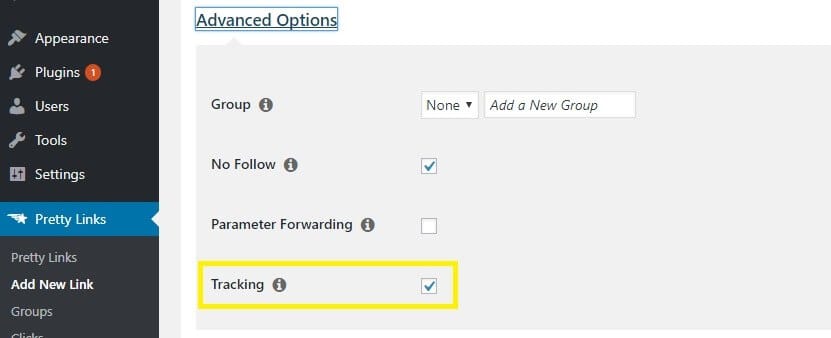
Tracking can help you understand what types of products your audience is interested in. You can then support your brand image by favoring those types of affiliate partnerships.
Finally, you might want to avoid using affiliate links in every episode. Promoting these URLs is essential, but users might start to feel overwhelmed if there’s a new offer every week.
Instead, consider creating a content strategy ahead of time that naturally works in your affiliate links. Having a plan in place can help you advertise effectively while also promoting your podcast’s main content.
Conclusion
Affiliate marketing can seem like an intimidating process. However, it can also be a valuable way to profit from your podcast. Fortunately, you can craft an effective strategy by focusing on relevant connections to your content.
In this article, we covered three tips to help you leverage affiliate marketing:
- Choose a tool such as PrettyLinks to keep your URLs neat and organized.
- Focus on expanding your audience to grow your commissions.
- Support your brand image with relevant, quality products.
Do you have any questions about using affiliate marketing with podcasts? Let us know in the comments section below!
If you liked this article, be sure to follow us on Facebook, Twitter, Pinterest, and LinkedIn! And don’t forget to subscribe to our newsletter!
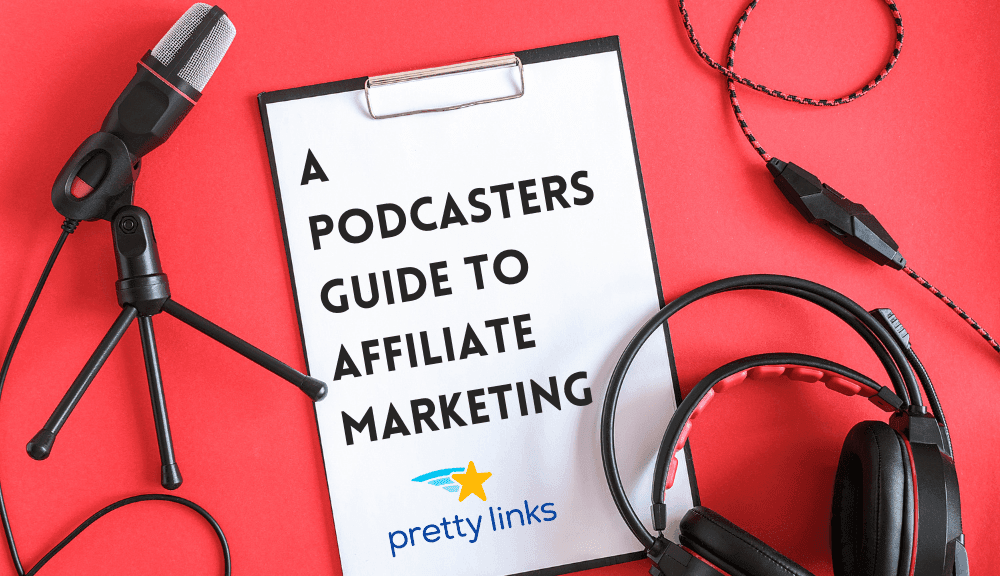
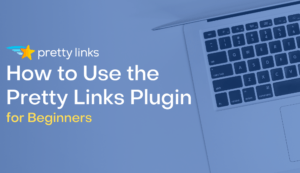
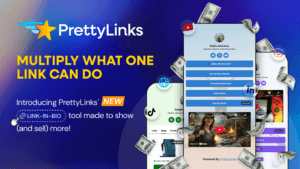
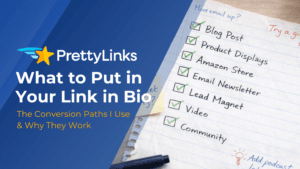

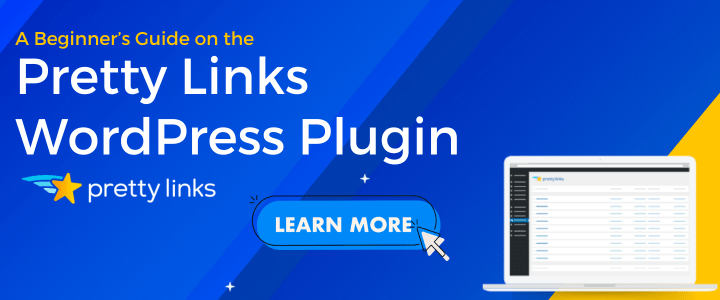
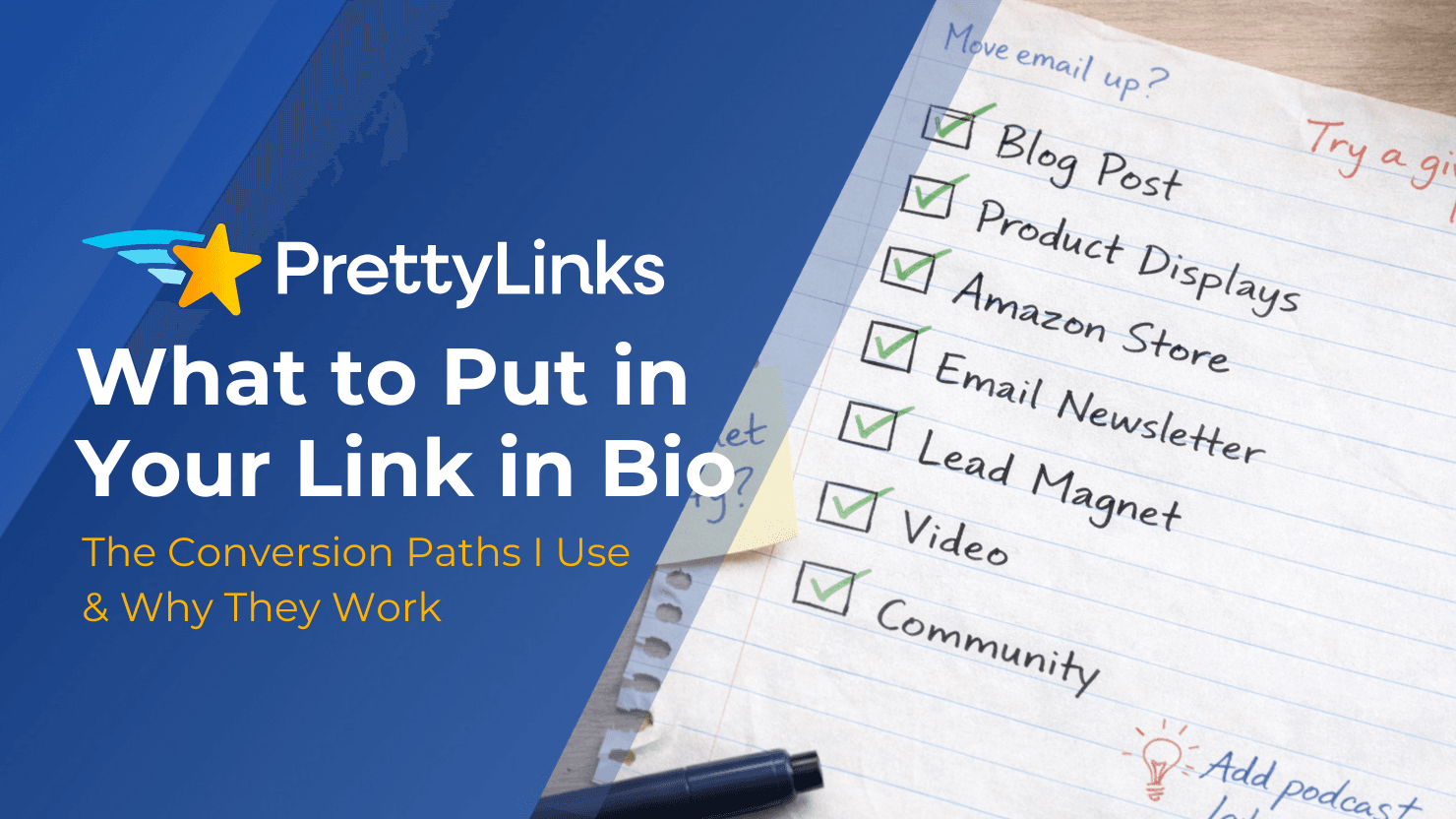


Leave a Reply